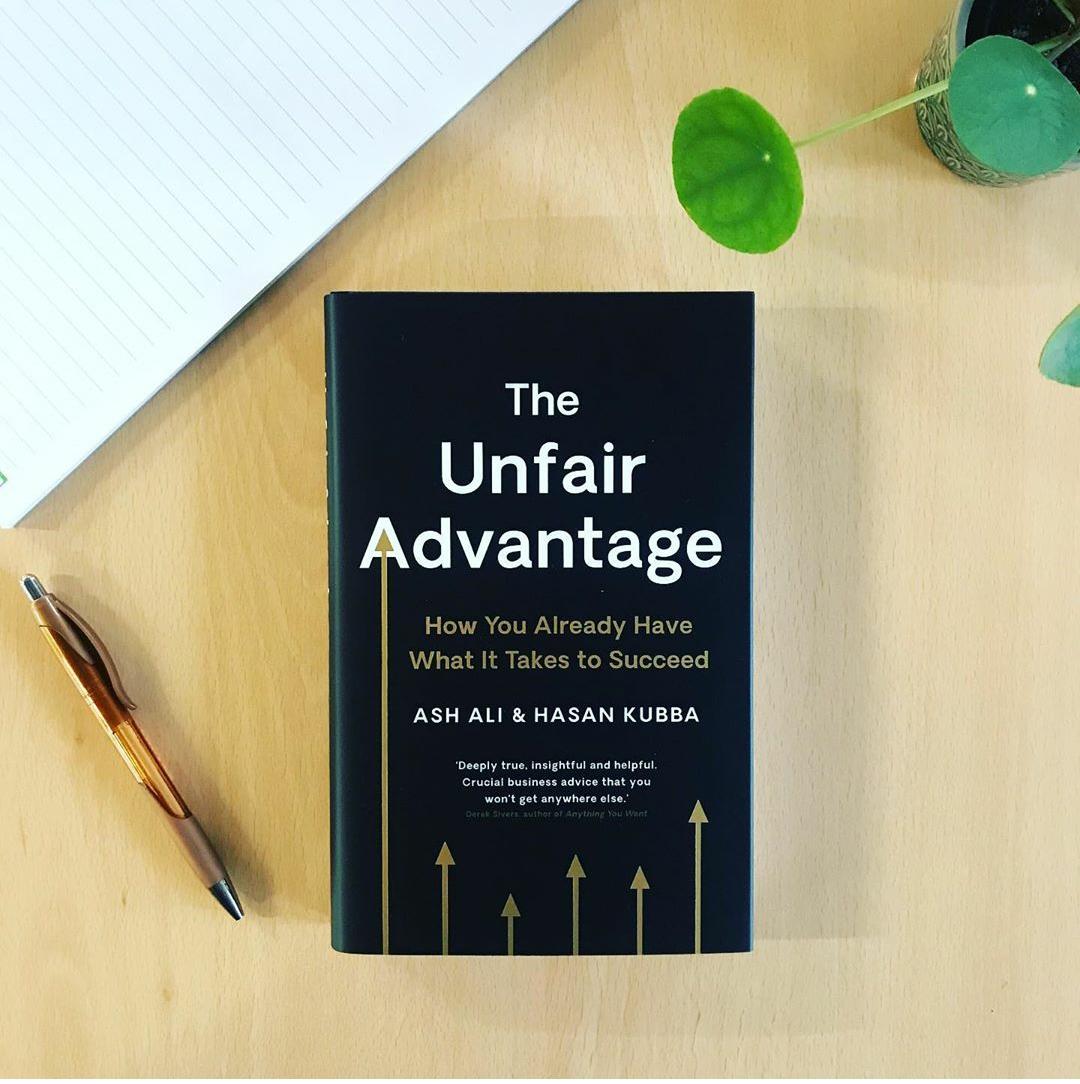The Unfair Advantages of life - Part 1
Why do some students do spectacularly better than others despite going to the same school, getting the same education, having the same private tutors, and working equally hard? Read on!

A relatively common set of questions that bothered me, a few of my friends, and a lot of my family members at various points in life can be paraphrased as below:
- Why do some students do spectacularly better than others despite going to the same school, getting the same education, having the same private tutors, and working equally hard? A reasonable extrapolation would be how some adults make more money than others despite graduating from the same college, same course, and the same year?
- How does one become an Elon Musk, Jeff Bezos, Narayan Murthy, Warren Buffet? What made them the people they are? Given the same opportunities, can anybody achieve the same things?
- Leroy Burrel set the world record in June 1991 with 9.90 seconds in a 100m sprint. In the 1991 World Track and Field Championships, he broke his own personal record and clocked 9.88 seconds. He won the silver medal because Carl Lewis clocked 9.86 seconds. Carl Lewis went on to win 9 Olympic gold medals. Burrel went on to become a university athletics coach. What role did luck have to play in these people's lives?
Fortunately, it turns out that this is a question that bothers people across the world, both rich and poor, educated and the uneducated, privileged and underprivileged. Ash Ali & Hasan Kubba, authors of The Unfair Advantage, tackle these questions by making a highly provocative suggestion. This article captures the essence of the above book. Along the way, I will share my experiences, thoughts, and struggles. I hope it makes your journey of finding your own self easier. Although the book deals with many of these concepts in the startup context, they are equally applicable to individual life goals.
Part I: Life is unfair. Understand.
Life is unfair. There is nothing anybody can do about it. In most parts of the world, being born as a male is an unfair advantage over a female. Being born in a developed country is an unfair advantage in comparison to a developing country. Being born into a loving, caring family is an unfair advantage over an unstable absentee family. Sexism or ageism, nepotism, social connections, inherited money, better education ‒ these are all irrefutable truths. So, we are born into a set of predetermined circumstances that are beyond our control. And yet, we have a great deal of control over how our future turns out. We can achieve almost anything we set our mind to within the realms of possibility for us. The key is to find what unfair advantages we possess. For example, Warren Buffet, the multibillionaire investor, was born in the United States in the 1930s. He didn't have anything to do with picking the United States! According to him, his two sisters have every bit the same intelligence and drive. Still, they didn't have the same opportunities as he did.
Part II: The MILES framework. Audit.
The MILES framework is an essential tool in auditing ourselves. It helps us identify our' assets, both internal and external, earned and unearned, psychological and circumstantial'. But the most crucial foundation of the entire framework is the mindset. People with a fixed mindset believe that they are born naturally gifted at doing some things but incapable of others. Failure is a disaster to such a person. People with a growth mindset believe that they can get good at anything if they put in the time or pay attention. This leads to daydreaming all the time. The disparity between daydreams and reality will make such people miserable, stressed out. A reality growth mindset accepts that life has its limitations (laws of physics or universe) and believes that anything is possible. Accommodating both these viewpoints without reconciling them entirely is a good first step in the process. Having a vision, being resourceful, embracing adaptation & lifelong learning, and perseverance with doggedness are the characteristic features of a reality-growth mindset.
Up until my high school days, I had a whole year to study 6 courses. I enjoyed the learning process and aced all my classes. In college, however, things were different. I had to learn 6 subjects every four months with tons of tests in between. I never adapted to the change in speed. Consequently, my grades suffered, and I remember constantly blaming the system (fixed mindset). My friends went on to do just fine all along. I would always daydream about winning a Nobel Prize in Physics without putting an ounce of work into them (growth mindset). But, about a year ago, I needed to learn a foundational course on particle accelerators during my job hunt. The content was as rigorous as a grad school course, and it was offered as an intensive 2 weeks course. Being aware of my previous mistakes, I adapted, accepted my shortcomings, went in fully prepared, and aced the course (reality-growth mindset).
Money
Being born into a wealthy family, having access to capital are all unfair advantages related to money. Once you have money, making more money becomes a much easier task compared to starting from scratch. It also opens many previously inaccessible doors. Deploying capital effectively can work wonders for individuals and corporations alike. Companies like Cisco, Apple, Facebook acquire smaller companies with money to eliminate competition. If we have access to cash at an individual level, we can upskill by taking up certification courses. In today's world, we can learn practically anything under the sun from the best and brightest in exchange for money. For example, I purchased this book because a YouTuber recommended it. It helped me learn about the right mindset to start a startup.
One primary concern that people express when it comes to money is distrust. People often wonder if YouTubers, bloggers & artists run a scam by recommending books and make money in the process. This is understandable when people do not have access to money. But even after achieving moderate success, the cynicism continues partly because of muscle memory and partly because of the misplaced value of money. Initially, I hesitated to buy books, register for courses, or buy tools that I needed badly to learn exciting things. I had very little access to money and a lot of distrust. However, I now see money as a tool since I have reasonable access to it. In the worst-case scenario, the recommended book turns out to be a dud; the course instructor sucks; the tools break. In the best-case scenario, I learn a new skill, add an improved perspective to my life, and invent something. A simple cost-benefit analysis tells me that I should definitely spend the money and have a shot at creating or learning something. Money is a tool and not a goal. Finally, most YouTubers, bloggers, and artists have their reputation on the line when they recommend products. If their subscribers detect fraud, their online careers are over. While I can't speak for everyone, I surely don't want to end up penny-wise, pound foolish.
Intelligence & Insight
Intelligence can be IQ, book smarts, street smarts, and creative intelligence. Insight is a unique & valuable perspective in our professional & personal endeavors. According to several studies, children who score higher on IQ tests, on average, will go on to do better in terms of academic achievement, economic success. They also tend to have better health and longer life. IQ is a measure of your logical-mathematical capacity. But IQ isn't all-encompassing. It doesn't measure street smarts (social intelligence, emotional intelligence) vital to running a business. It doesn't measure creative intelligence, which is central to an artist's success. Street smarts include knowing solutions to practical problems in life. It involves an ability to understand what questions to ask and how to ask them, building trust & relationships. Having social & emotional intelligence, common sense, and knowing when people are trying to screw you over makes us a street-smart person. Creative intelligence is the ability to create meaningful art, design, code in a previously unknown way. This is an ability to connect things you learn in one domain to situations that seemly completely unrelated.
We could develop most of these advantages by cultivating our curiosity & experimenting with things. We can improve our social skills by understanding how people feel, and the emotional impact things have on them. Being aware of our own emotions and moods, not letting them dictate our actions helps us improve our emotional intelligence. Learning from fields and areas of knowledge that are entirely different from what we already know is an excellent way to enhance creative intelligence. For example, learning music, gardening, sailing, outdoor games engage our brains in different ways than our day job. It helps us develop diverse mental models that allow us to think more laterally.
Conclusion for Part 1
Two familiar narratives dominate the discourse when it comes to financial success. The meritocracy argument is that people like Mark Zuckerburg, Elon Musk worked incredibly hard to achieve their financial success. Anyone willing to put in that kind of effort will see the same benefits. The fatalism argument is that rich people got rich because of their privilege, family wealth, connections, and luck. It can't be replicated, so it is not worth trying. In reality, the truth lies squarely in the middle. Hard work and luck both contribute equally to success. Suppose we overtly believe that we live in a pure meritocracy. In that case, it imbues value-judgment, a sense of 'deservedness,' to people's positions in life. If we overtly believe in fatalism, we will give up even before we try.
I am guilty of the kind of value judgment associated with the meritocracy argument. I am making a sincere effort to be more compassionate in life. While I consider myself intelligent and street-smart, I struggle with emotional intelligence very often. I am confrontational at times, hurtful at others. While my reasons are mostly valid, my methods are questionable. I understand that it limits my ability to run organizations or businesses. I will have to make amends to become more acceptable.
In the next part, we will discuss Location & Luck, Education & Expertise, and Status. I will press pause and leave you with a quote to ponder over for the next week.
"… in the Middle Ages in England, when you met a poor person, that person would be described as an unfortunate ‒ i.e., somebody not blessed by good fortune. Nowadays, people believe that they already live in a pure meritocracy. For example, in the United States, if you meet someone at the bottom of society, they might unkindly be described as a 'loser.'"
- Alain de Botton (Philosopher)
